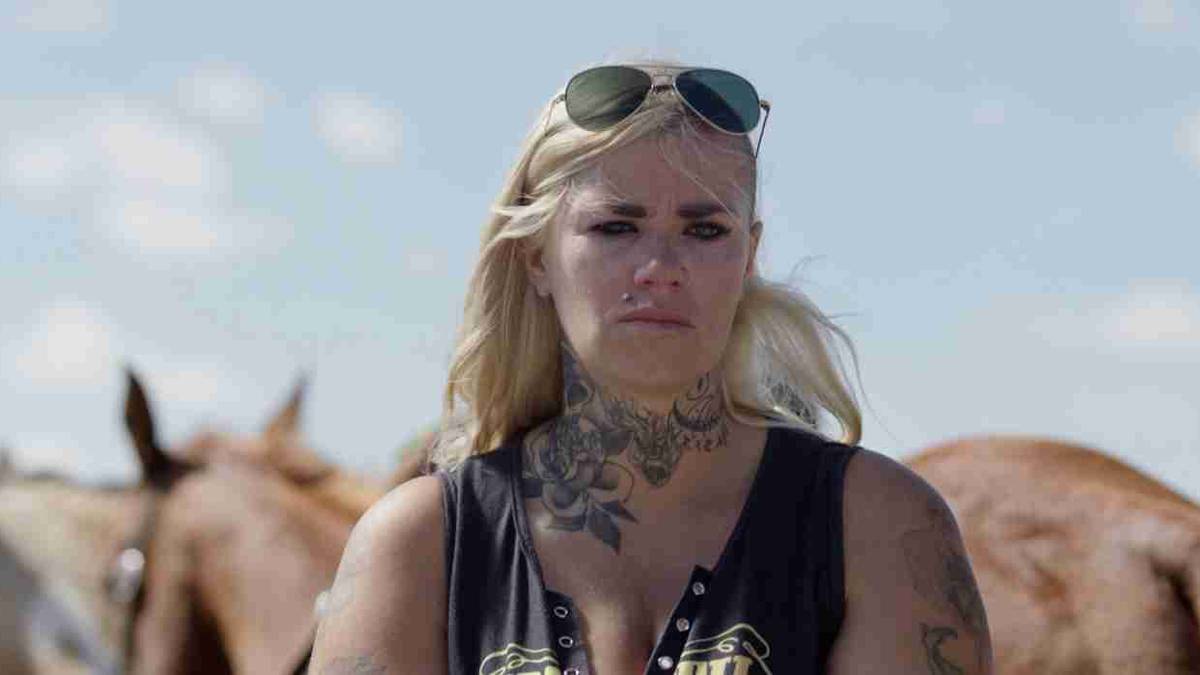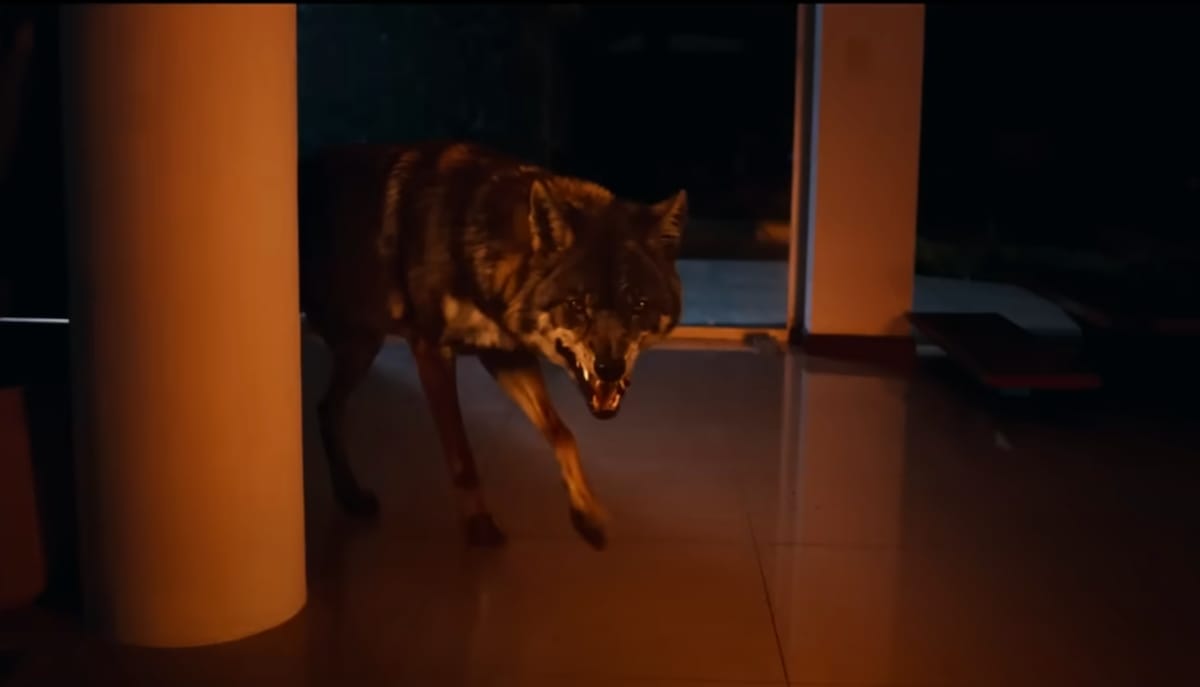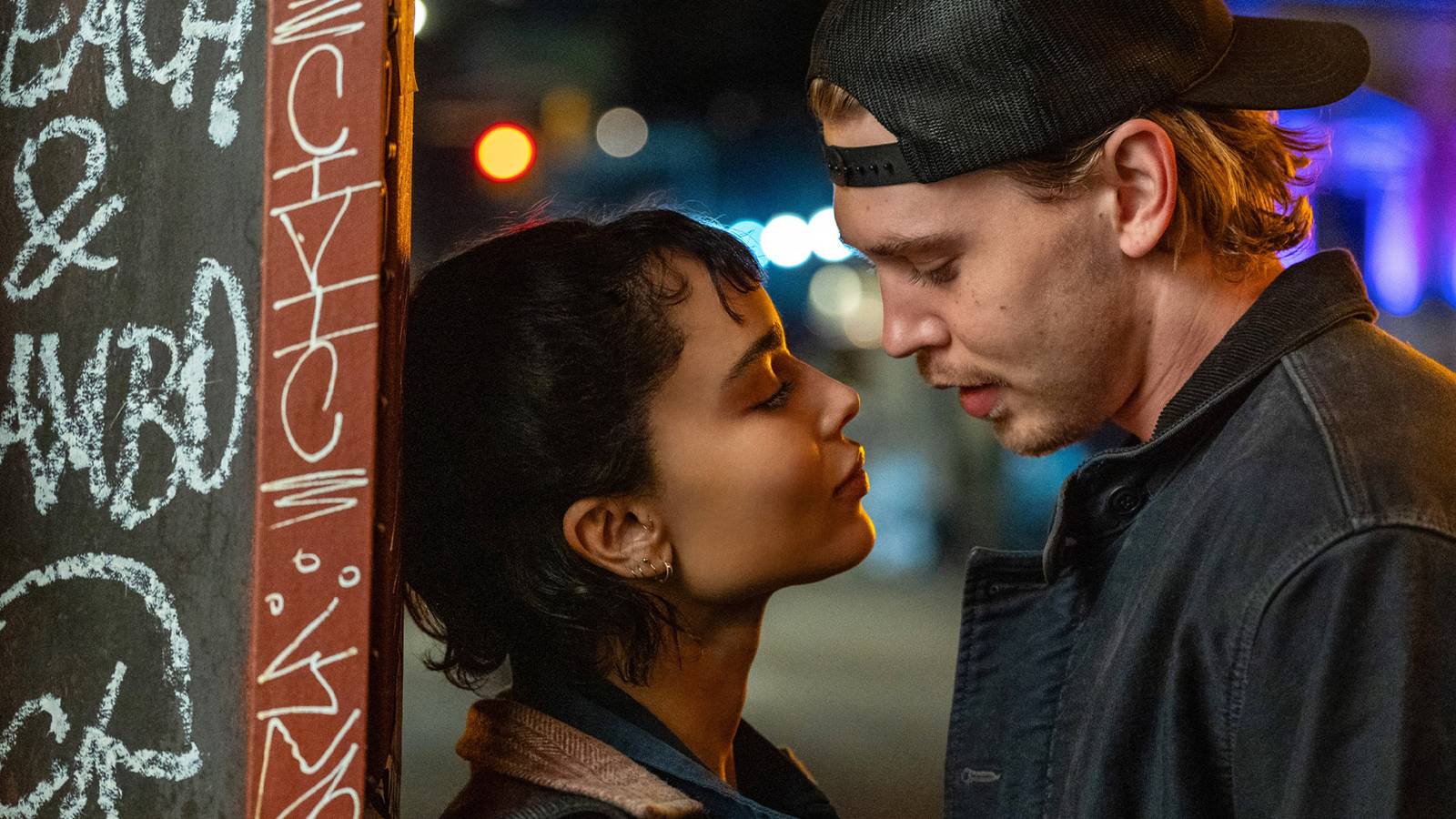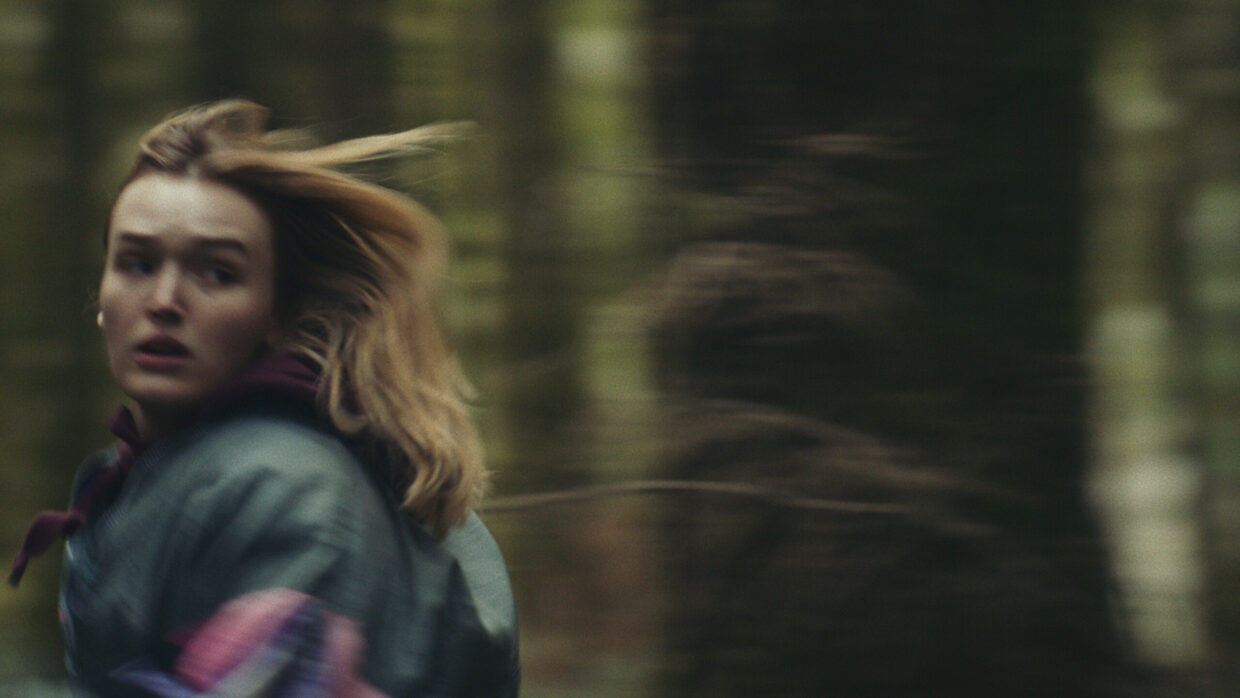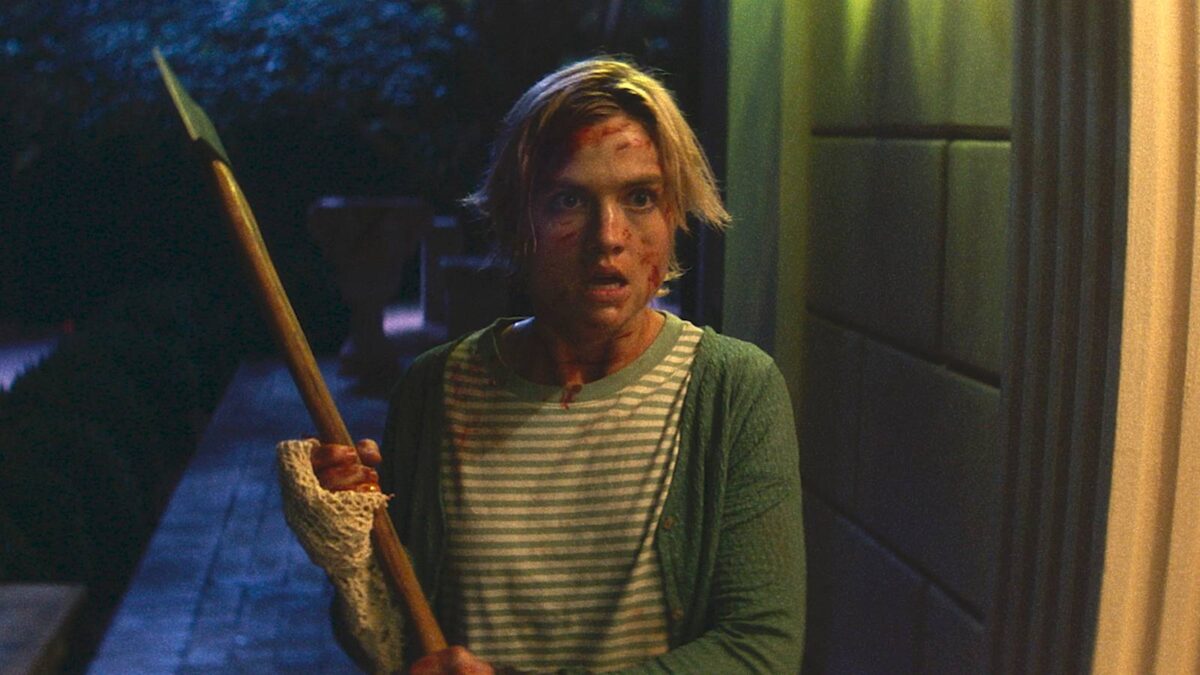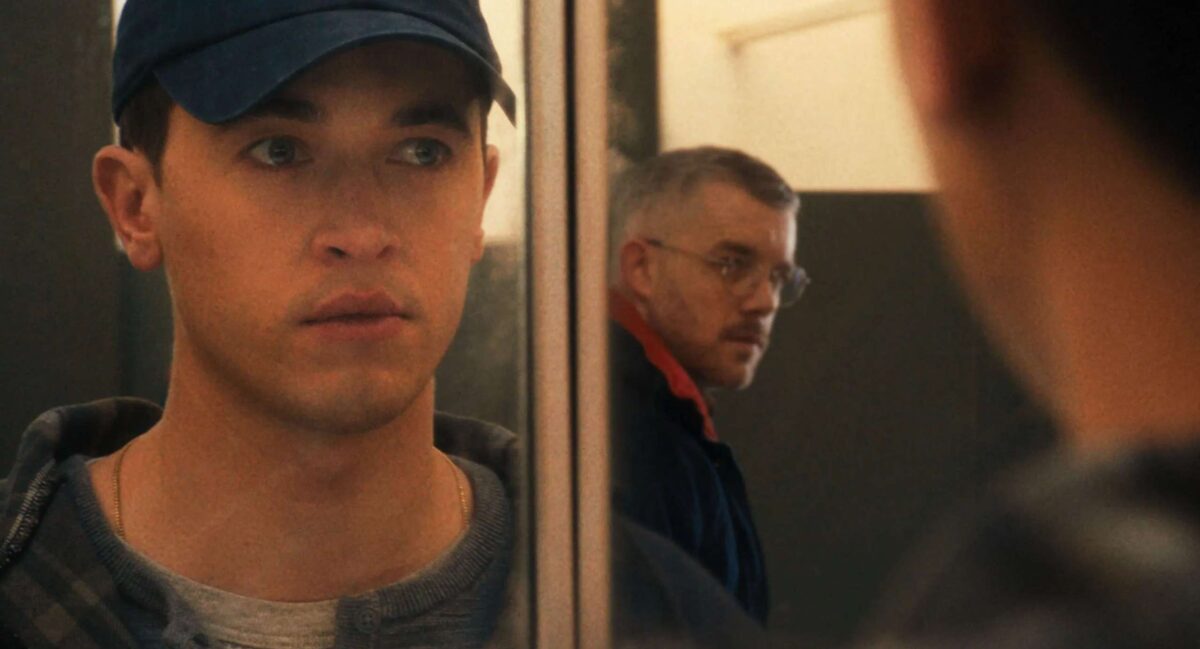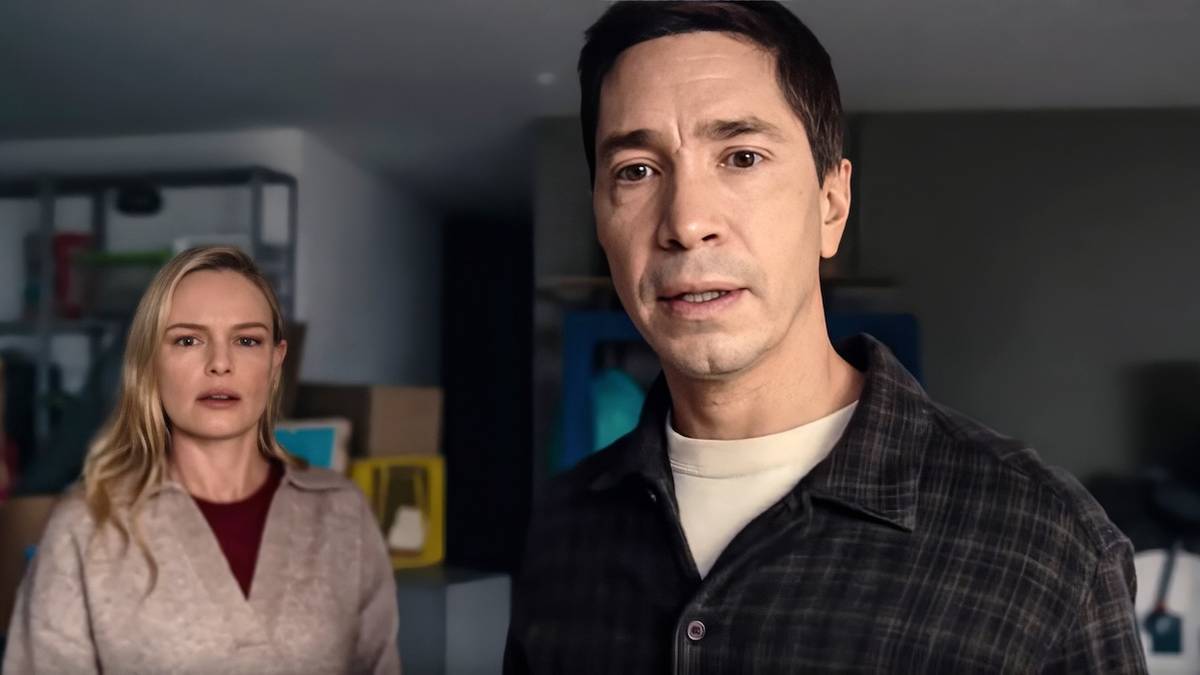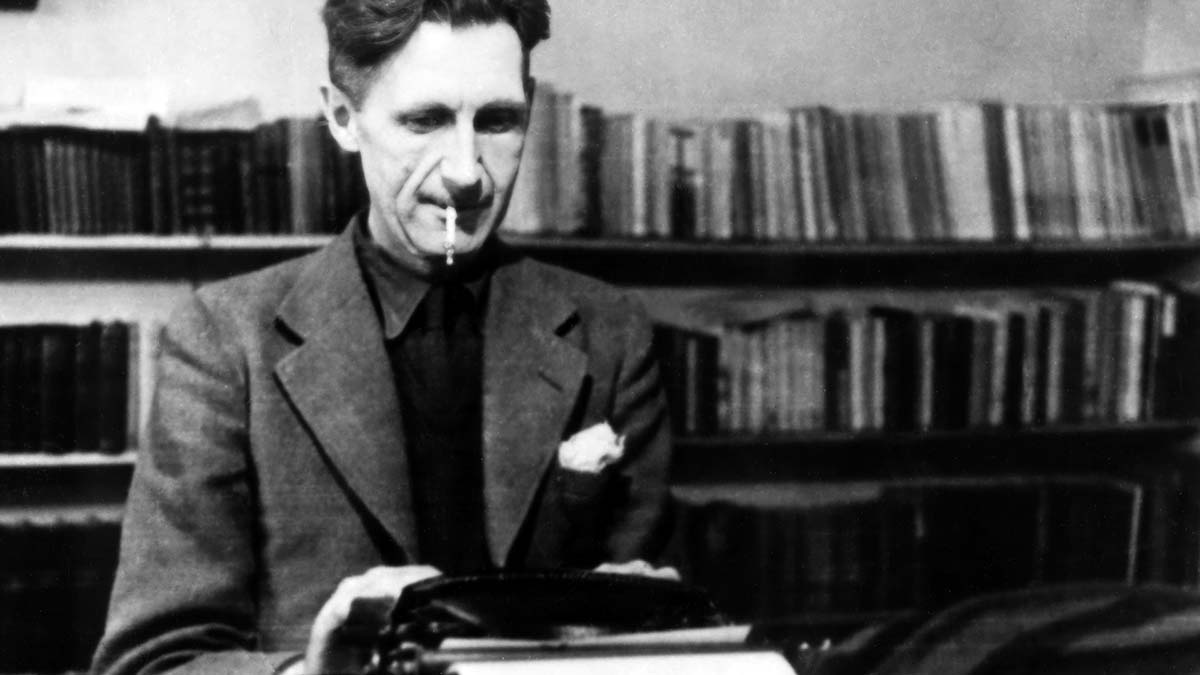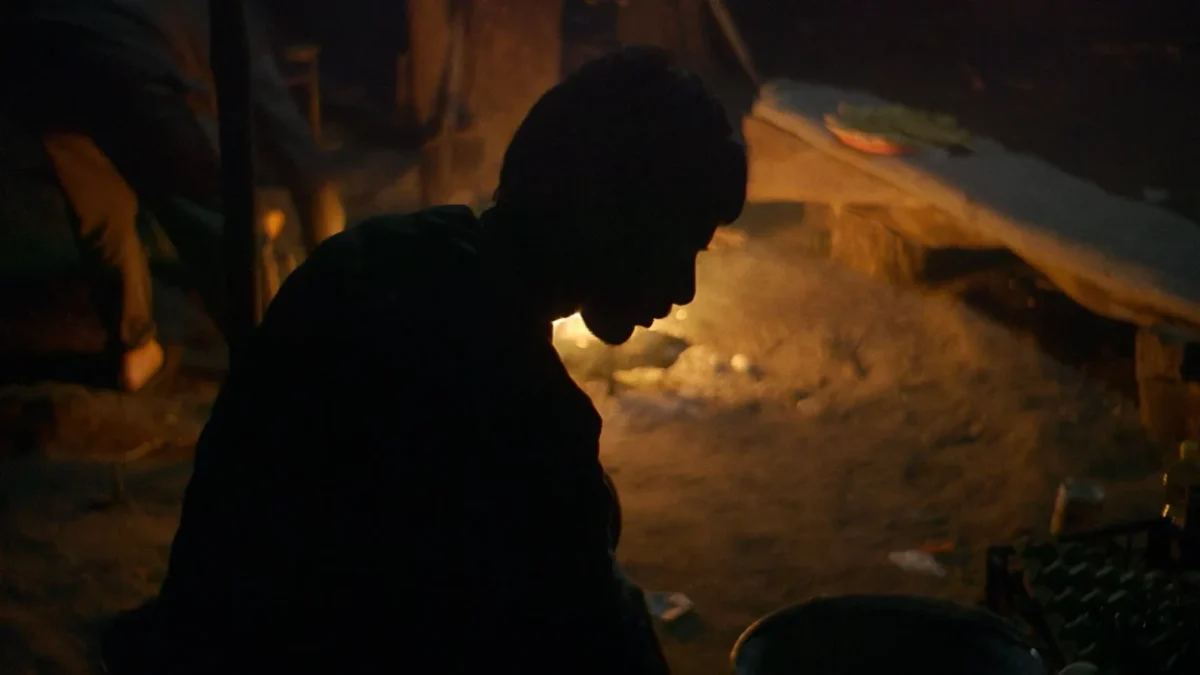
Federico Cammarata and Filippo Foscarini on Waking HoursFilmmaker Magazine
Sep 4, 2025
Waking Hours
Waking Hours is the auspicious, Venice-premiering feature debut of cinematic collaborators Federico Cammarata and Filippo Foscarini, graduates of the Experimental Center of Cinematography in Palermo. With Cammarata handling camerawork, Foscarini on sound, the duo have been working as a two-man team since their 2020 award-winning, mid-length doc Tardo Agosto. And their less-is-more approach shows (and then some).
The film stems from the simplest of premises: a group of Afghan smugglers who’ve set up camp along the border between Serbia, Croatia and Hungary spend their nights smoking and chatting by the fire (the only source of light) when not discussing prices and working out operational details over the phone. Shot from a respectful distance in near-total darkness, and with the ambient sounds of the forest serving as soundtrack, the doc forces us to adjust our eyes in order to see the shapes emerging from the blackness onscreen; and to witness a nocturnal existence in which time is suspended, the hushed tedium punctuated only by distant gunshots. In other words, to look and listen differently.
Just prior to Waking Hours’s Critics’ Week debut (September 4th), Filmmaker reached out to the co-directors to learn all about crafting a doc that “proposes a poetic and civic counter-investigation, not seeking culprits but creating listening.”
Filmmaker: Your characters all seem wary of (and in at least one case downright hostile to) Europeans, so I’m curious as to why they let two Italians film them. How did you meet these smugglers and ultimately gain their trust?
Cammarata and Foscarini: How this relationship of trust and solidarity developed still remains a mystery to us, even today. The film was born by chance. We were in the area to shoot something entirely different when we unexpectedly stumbled upon a completely new reality. We first met the protagonists through an NGO operating in the region. Some time after, they invited us to a “jungle kebab” dinner to celebrate the end of Ramadan. From the very beginning there was a strong mutual connection and curiosity, and they understood that we were not a threat to them. It’s also worth mentioning that the two of us were not authorized to be there — in a way like them.
Their decision to live in the forests near the border immediately struck us as a form of resistance. By “resistance,” we mean an individual refusal to submit to oppression. As one of the film’s protagonists says, “Better to live in the forest than within the Schengen area.” Even smuggling, in this context, becomes both a response to and a consequence of Europe’s exclusionary policies.
Filmmaker: The doc is strikingly visceral — shot completely in near-total darkness and with an ambient sound design — so I’m hoping you might discuss developing the film’s aesthetic. What was the process of merging “cinéma vérité and theater” (per your directors’s statement)?
Cammarata and Foscarini: This “visceral” approach is something we carry around with us since our first film together. In this case we wanted to make tangible for the spectator the state of restlessness that people go through on the Balkan route, the limbo of a journey that can last for years.
For us, the only way to do it was by diving completely inside the long and sleepless nights of the forest, and then emerging back with visual and sound material collected on the ground. From there we would start to edit and build the film.
In the editing room we noticed some kind of “theatrical staging” in a lot of shots, and that inevitably influenced our approach. We then conceived a form of primal theater, shadows reflected in the depths of a cave, where voices and storytelling play a defining role. The characters themselves are less like the conventional archetypes of the villainous smuggler or the cruel criminal, and more like theater masks or the ghosts of a body that once existed.
Filmmaker: I believe you filmed throughout the summer of 2023, up until border police destroyed the encampments in the fall. So what sorts of precautions did you have to take in order to keep yourselves and your protagonists safe from the authorities?
Cammarata and Foscarini: We arrived there, though unconsciously, during a peak of activity in the area, right before a huge operation by Frontex (the European border police) that was probably being prepared for months. At the time of filming we were not totally aware of the risks we were taking, and that was partially a good thing because it allowed us to move with relative “comfort,” although with a touch of recklessness. Being caught inside the camps would have probably caused problems. We would have had to demonstrate what we were doing, and also would have put our filmed material in danger.
Another risk was connected to the armed conflicts that were going on between the smuggler gangs. Our protagonists informed us that since the beginning of that year, 15 guys from Afghanistan were killed inside the forest – a figure that was obviously not made official by local authorities who, at that time, were mostly trying to downplay the phenomenon.
Once we established a bond with the characters we essentially had to rely on them to provide a security environment in which we could operate. To make the film that we had in our minds, it was fundamental to carve out a space of security that would allow us to spend many hours with them inside the forest.
Filmmaker: I’m also curious to hear what Roberto Minervini’s (What You Gonna Do When the World’s on Fire?) involvement was in the film. When did he come onboard as co-producer?
Cammarata and Foscarini: The editing of the film took an entire year of continuous work to finish. After many months of struggle we were starting to see the light at the end of the tunnel, but by then we had almost lost any kind of objectivity.
We decided to start showing it to some trusted people; we felt we needed the perspective of an auteur who had many years of experience, and one of the producers, Dario Zonta, proposed to show it to Roberto because they had been working together for a long time. Unexpectedly, Roberto fell completely in love with the film and immediately contacted us. He felt involved to such an extent that he wanted to help us to complete it. The discussion with him was very important to get to the final cut because we were dealing with a radical project from several points of view, and we went through great uncertainty during the process. He gave us the right amount of confidence at the right moment.
Filmmaker: What’s it like premiering your feature debut at Venice without the knowledge of your protagonists, all uncredited and who you’ve lost contact with? Are you still hoping to locate them?
Cammarata and Foscarini: It’s the most painful question to answer. We hadn’t yet finished filming when police stormed the camps; our relationship with the protagonists was still evolving.
We were warned about what was going on by one of them over the phone. We discovered that even humanitarian organizations operating on the ground had their access blocked by the military. We know some of the people ended up locked in detention centers, others managed to escape. But from that point on, all contact was lost.
The editing process itself is partly an attempt to process that loss — a way of preserving the memory of these individuals.
Publisher: Source link
Erotic Horror Is Long On Innuendo, Short On Climax As It Fails To Deliver On A Promising Premise
Picture this: you splurge on a stunning estate on AirBnB for a romantic weekend with your long-time partner, only for another couple to show up having done the same, on a different app. With the hosts not responding to messages…
Oct 8, 2025
Desire, Duty, and Deception Collide
Carmen Emmi’s Plainclothes is an evocative, bruising romantic thriller that takes place in the shadowy underbelly of 1990s New York, where personal identity collides with institutional control. More than just a story about police work, the film is a taut…
Oct 8, 2025
Real-Life Couple Justin Long and Kate Bosworth Have Tons of Fun in a Creature Feature That Plays It Too Safe
In 2022, Justin Long and Kate Bosworth teamed up for the horror comedy House of Darkness. A year later, the actors got married and are now parents, so it's fun to see them working together again for another outing in…
Oct 6, 2025
Raoul Peck’s Everything Bagel Documentary Puts Too Much In the Author’s Mouth [TIFF]
Everyone has their own George Orwell and tends to think everyone else gets him wrong. As such, making a sprawling quasi-biographical documentary like “Orwell: 2+2=5” is a brave effort bound to exasperate people across the political spectrum. Even so, Raoul…
Oct 6, 2025

